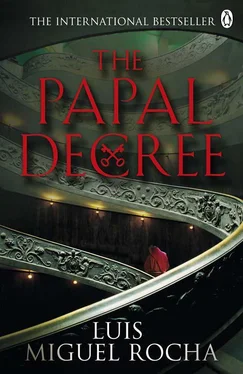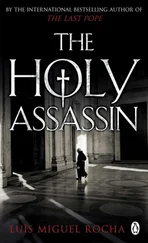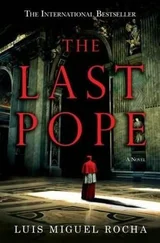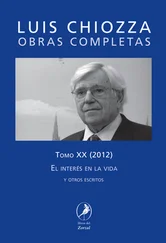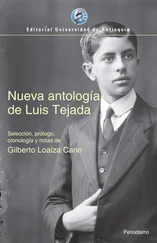Luis Rocha - Papal decree
Здесь есть возможность читать онлайн «Luis Rocha - Papal decree» весь текст электронной книги совершенно бесплатно (целиком полную версию без сокращений). В некоторых случаях можно слушать аудио, скачать через торрент в формате fb2 и присутствует краткое содержание. Жанр: Триллер, на английском языке. Описание произведения, (предисловие) а так же отзывы посетителей доступны на портале библиотеки ЛибКат.
- Название:Papal decree
- Автор:
- Жанр:
- Год:неизвестен
- ISBN:нет данных
- Рейтинг книги:4 / 5. Голосов: 1
-
Избранное:Добавить в избранное
- Отзывы:
-
Ваша оценка:
- 80
- 1
- 2
- 3
- 4
- 5
Papal decree: краткое содержание, описание и аннотация
Предлагаем к чтению аннотацию, описание, краткое содержание или предисловие (зависит от того, что написал сам автор книги «Papal decree»). Если вы не нашли необходимую информацию о книге — напишите в комментариях, мы постараемся отыскать её.
Papal decree — читать онлайн бесплатно полную книгу (весь текст) целиком
Ниже представлен текст книги, разбитый по страницам. Система сохранения места последней прочитанной страницы, позволяет с удобством читать онлайн бесплатно книгу «Papal decree», без необходимости каждый раз заново искать на чём Вы остановились. Поставьте закладку, и сможете в любой момент перейти на страницу, на которой закончили чтение.
Интервал:
Закладка:
The van stopped next to a Learjet 60 XR that was ready to board them. An attendant waited next to the steps to help Myriam and Ben climb into the plane.
‘Welcome,’ she greeted them with a brightly enameled smile.
The interior of the jet was a luxury they had become accustomed to, but even if they weren’t used to it, they wouldn’t have noticed. They were stopped in their tracks by the sight of a cardinal, accompanied by a young woman, seated comfortably in the cabin.
‘You’re a difficult man to find, Ben Isaac,’ the cardinal observed.
‘I was never hiding.’
‘Sit down.’ William gestured toward the seats. ‘Make yourselves at home.’
20
The priest’s name was Gunter, and he made them wait awhile. It was just as well that an acolyte received them inside the immense Church of Saint-Paul-Saint-Louis, sheltering them from the rain, which was getting heavy.
Gavache lit another cigarette over the useless objections of the acolyte. Those who enforce the law are always above it.
Jacopo displayed a scornful smile, which everyone else considered idiotic, but no one said so.
A Delacroix looked over them in silence, Christ in the Garden of Olives. A statue, the Virgin of Sorrows, by a prominent French sculptor, could also be admired. Rafael felt as if he were inside a puzzle with missing pieces. He was used to being a step ahead, not a step behind. It was not a comfortable position.
Jacopo wandered through the side chapels appreciating the works of sacred art. This was his world. The light was dim and lent an air of mystery, deepened by the rain they could hear falling outside.
‘Interesting,’ Jacopo stammered, his eyes on an altar full of relics.
‘What’s interesting?’ Gavache interrupted with a cigarette between his lips.
‘This church. It’s based entirely on the Church of the Gesu in Rome. Even the facade outside. The Jesuits are indeed exemplary.’
‘It’s a Jesuit church, anyway,’ Gavache offered, looking at Rafael. ‘Do you think they’ll give up one of their own?’
‘We’ll see,’ Rafael replied, sitting down in a pew next to Jean-Paul. ‘That isn’t the idea.’
‘What makes the Jesuits so special?’ Gavache asked Jacopo.
‘They’re extremely intelligent. They know how to think about the church. You could say they’re specialists in marketing religion.’
Rafael smiled. What an absurd idea.
‘They always turn to preaching. Unlike the Benedictines, for example, who live in communities and follow daily rituals together, the Jesuits think more about society than community. To convert people after preaching, spread the word of God through the world. Loyola was a very good strategist,’ Jacopo said, warming to his subject.
‘You talk a lot about this Loyola,’ Gavache noted.
‘Naturally. Saint Ignatius of Loyola was the founder of the Society of Jesus. This church, like many others, is due to the work that he initiated. It’s the largest Catholic religious order in the world. And everything began here in Paris.’
‘That’s enough of a history lesson for now,’ Rafael said, saturated. He knew what Jacopo was going to say backward and forward.
‘Sorry, Rafael, but the subject interests me,’ Gavache interjected, then looked at Jacopo. ‘Please, continue.’
That a French inspector was interested in what he had to teach about the Jesuits made Jacopo feel very important.
‘Okay, you can always recognize a Jesuit church from its symbol. We’re talking about the sixteenth century, and they already had a notion of a sign.’ He pointed to the altar and to the acronym above the image of Christ. ‘IHS. You’ll find those letters on the facade, too.’
‘IHS?’
‘Yes, it signifies Jesus in Greek, composed of the letters iota, eta, sigma. Iota and eta are the same in Greek and Latin. Sigma was transliterated as S, and in some cases C, because they have the same sound. They also interpret the acronym in Latin as Iesus Hominum Salvator, which means Jesus Savior of Men. If until the Council of Trent the Benedictines were the ones to follow in the matter of ritual, afterward the Jesuits revolutionized everything. Do you see that pulpit?’ He pointed to a kind of marble veranda on top of a carved cap on a column supporting them.
‘I’m looking at it.’
‘The Jesuits were adept at preaching, as opposed to turning their backs on the people. Don’t forget, we’re talking about the sixteenth and seventeenth centuries. Mass was celebrated in Latin, but the Jesuit fathers made a point of preaching facing the faithful, very close to them, in a way they understood.’ Jacopo was silent for a few moments. Many priests had preached their sermons from those pulpits. ‘And for me one of the most inspired inventions of the church: the confession,’ Jacopo added.
‘The confession? How so?’ Gavache looked perplexed.
‘It was the Jesuits who invented confession as we know it today. I know we grew up thinking that these things existed forever, but it’s not true. Everything has a beginning.’
Gavache had to think about that.
‘Marriage…,’ Jacopo proceeded.
‘Don’t tell me that was one of their inventions also?’ Gavache cut him off.
‘No, marriage was before them, but the ritual as we know it today comes from the twelfth century. I mention it to illustrate how things aren’t as we think they are. Someone thought them up, someone created them… men, not God.’
Jacopo let the idea sink in. It was a theory that made people, especially laypeople, think.
‘You’re a sensationalist, Jacopo,’ Rafael accused.
‘Am I lying?’
‘You put things in a very simple way. As if they’d tried to think up ways to exploit the faithful,’ Rafael argued. Gunter was really taking a long time.
‘And didn’t they? What was confession?’
‘You tell me.’
‘What better way to create the omnipresence of God,’ Jacopo said, his face flushed. The subject was dear to his heart.
‘Please, Jacopo. That’s absurd.’
‘I don’t think it’s absurd,’ Gavache put in.
‘You see?’ Jacopo agreed. ‘Any person with any sense agrees. Confession was a pleasant procedure for getting to know the lives of everyone around you. Even today a Jesuit priest hears confession from the pope every Friday. I tip my hat. It was ingenious.’
‘The confession is protected by secrecy on the part of the confessor,’ Rafael replied, tired of the conversation.
‘What does that matter? As soon as you tell me your secret, even in confession, I have power over you because I know something no one else does. Besides, a superior can oblige a confessor to divulge the confession, as you know very well. There’s a reason they call the superior general of the society the black pope.’
‘The black pope?’ Gavache inquired.
‘Yes, because the Jesuit suit is black,’ Jacopo explained. ‘There are some who claim that the black pope has more power than the pope himself.’
‘Interesting.’ Gavache was visibly intrigued.
‘It’s the society’s mission to serve the Supreme Pontiff wherever he desires, without question, fulfilling his will, always, but it’s said that whoever opposes the society finds himself in a war that can end very badly, even for the pope himself. There are rumors that some popes died at the hands of the society.’
‘That is outrageous,’ said a thundering voice behind them. It was Gunter, who crossed the nave from the altar with firm steps. ‘The Jesuits answer only to the pope and carry out what His Holiness wants, when he wants, without question. We preach the word of the Lord all over the world — love, understanding, tolerance — and we help society progress down a good path. We never put a life at risk,’ he added. ‘I’m sorry I made you wait. My name is Gunter.’ He introduced himself to Gavache with a handshake. When he came to Rafael, he embraced him. Two friends separated by distance. He did not greet Jacopo.
Читать дальшеИнтервал:
Закладка:
Похожие книги на «Papal decree»
Представляем Вашему вниманию похожие книги на «Papal decree» списком для выбора. Мы отобрали схожую по названию и смыслу литературу в надежде предоставить читателям больше вариантов отыскать новые, интересные, ещё непрочитанные произведения.
Обсуждение, отзывы о книге «Papal decree» и просто собственные мнения читателей. Оставьте ваши комментарии, напишите, что Вы думаете о произведении, его смысле или главных героях. Укажите что конкретно понравилось, а что нет, и почему Вы так считаете.
